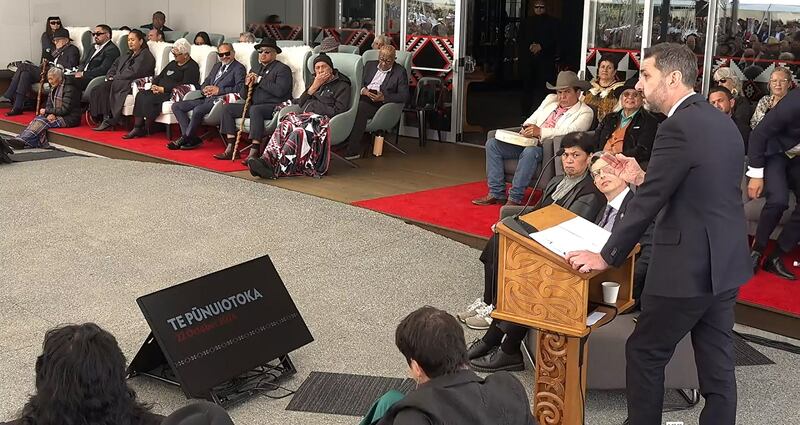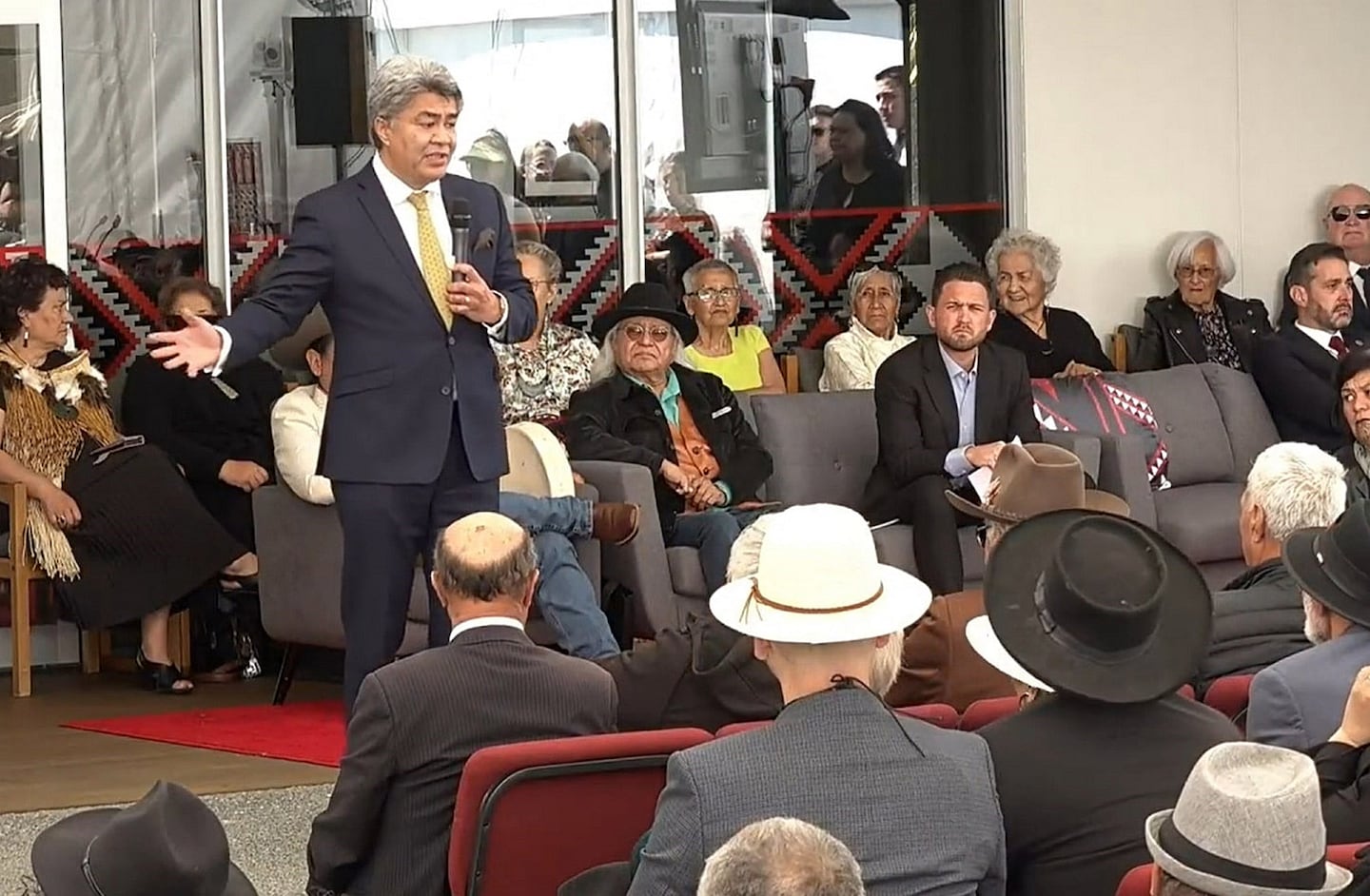Ngāi Tahu leaders have been looking to a united future during a hui at Tuahiwi Marae on Tuesday.
Authority over land and taonga, economic self-determination and independent title were on the agenda as leaders gathered for the Hui-o-Motu, with the Māori Queen among those attending.
It was the last of a series of four Te Pūnuiotoka hui around the country, following a call from the late Kingi Tuheitia in January to build kotahitanga (unity) among Māori.
The late king’s successor Kuini Nga wai hono i te po attended to carry on his legacy.

Te Rūnanga o Ngāi Tahu Kaiwhakahaere Justin Tipa said the iwi had been exploring these issues for more than a decade, including building relationships with the Tulo Centre for Indigenous Economics in Canada and other first nations.
The hui included speakers from Canadian first nations, New Zealand economic commentators and the Ngāi Tahu Research Centre at the University of Canterbury.
‘‘Our hope is that Te Pūnuiotoka will offer an insight into how Ngāi Tahu are looking to assert our tino rangatiratanga into the future,’’ Mr Tipa said.
‘‘We believe there is a strong economic rationale for the pathway we are proposing, and that political change that enables this pathway is good for New Zealand as a whole.’’
He said Ngāi Tahu will continue to develop its ‘‘thinking on how to apply the Tulo model in our context as hapū and iwi’’.





